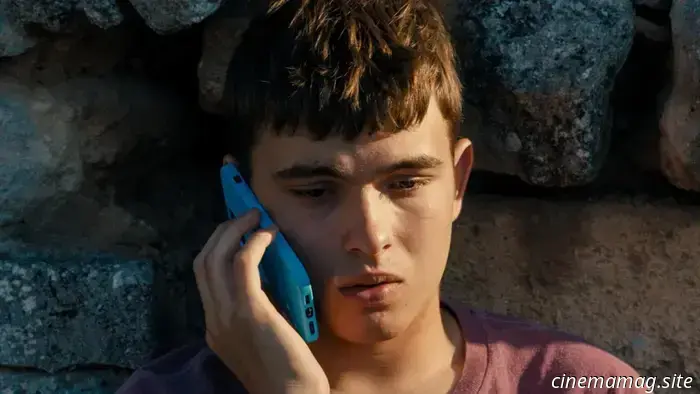
Cannes Review: Enzo is a Delicately Told Queer Coming-of-Age Story
The queer coming-of-age journey is marked by significant vulnerability: a young individual confronts the realization that they are becoming distinct from their past selves and those around them. Robin Campillo’s "Enzo," which opened the Directors’ Fortnight segment at Cannes, captures the sensitivity of this theme and deftly portrays its main character. However, it may be perceived as slightly too gentle and somewhat unfocused at first, until a poignant third act unveils the complexities and challenges of a boy searching for his place in the world.
Enzo is 16 years old. We encounter him at a construction site in the countryside, where he mixes concrete and lays bricks under the relentless sun. The work proves difficult, and he appears neither skilled nor inclined to improve. When his boss takes him home to express dissatisfaction with his performance to his parents, we discover Enzo actually comes from a wealthy background. A glance at the gated mansion he shares with his white-collar family reveals to both the boss and the audience that Enzo has the option to avoid the challenges of manual labor if he chooses; we later learn that his father is persistently urging him to complete his education or pursue something that would make him happy. Yet, Enzo continues to work.
Among his male colleagues who engage in banter and share stories about girls is Vlad, a Ukrainian immigrant who mentors Enzo and shares the traumas of war from his homeland. Throughout the first hour of "Enzo," we see him spending time with Vlad, researching the Ukrainian conflict, rebelling against his father's expectations, working to “do something with his hands,” and kissing a girl. Although there are reasons behind the actions of this paradoxical character who seems to navigate life based on impulses, everything shifts when Enzo, following another clash with his father, spends a night at Vlad's apartment.
Enzo was initially developed by Palme d'Or winner Laurent Cantet (The Class) and later completed by Campillo after Cantet's passing; both filmmakers have made their contributions to the project. Known for his acute insight into young people still exploring their identities, Cantet created a captivating protagonist filled with internal conflict and unexpressed yearnings. In a landscape where characters of this age are often seen merely as someone’s child, it's refreshing to witness one portrayed with such thoughtfulness. There is palpable tenderness in the depiction of this teenager who, despite his comfort and privilege, feels trapped in numerous ways.
Campillo’s primary strength as a director lies in his humanist tendency to observe. His work reveals a fascination with people and their behaviors, as exemplified by how he films actors reenacting the Act Up protests in his Grand Prix-winning "120 BPM," or the opening of "Eastern Boys," which quietly focuses on a group of scammers operating in a Paris train station. Even if his films do not resonate thematically, this genuine, non-judgmental curiosity is evident in every frame, making it a pleasure to watch his subjects and spend time with them. Although the first hour of "Enzo" may lack a clear narrative or emotional anchor, it remains engaging to observe and reflect on this complex character.
The story gains momentum significantly after the pivotal night at Vlad’s, as Enzo confronts truths about himself and the emotional aftermath of his first heartbreak. With sensitivity and realism, Campillo concludes the narrative not with exaggerated sorrow or unrealistic happiness, but rather with a sense of relief—the understanding that this boy will ultimately be alright.
"Enzo," akin to "Call Me by Your Name," centers on the sexual awakening of a young man. Both films are set in sun-drenched locales and culminate around a memorable phone call. However, in contrast to Guadagnino’s emotionally intense film, Campillo presents a lighter narrative. It is commendable that, for a change, the gay character in a romance does not meet a tragic or traumatic end. Additionally, it is refreshing to see a film that explores queerness not solely in terms of sexuality but also in a broader context of alienation and the feeling of being out of place in one’s own life. This theme still holds vast potential for storytelling.
"Enzo" premiered at the 2025 Cannes Film Festival.
Other articles
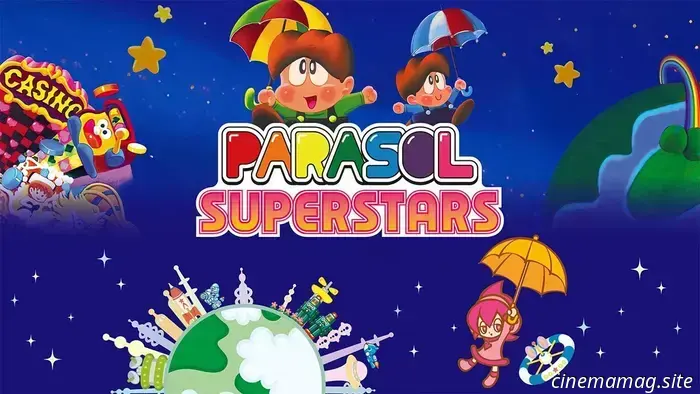 Parasol Superstars is set to release retro classics for consoles this September.
ININ Games is set to create a wave of nostalgia and cuteness this September with the digital release of Parasol Superstars for Nintendo Switch, PlayStation 4, PlayStation 5, and Xbox, along with a physical version for Nintendo Switch and PS5. Parasol Superstars will include the well-loved Parasol Stars and the newly introduced retro-inspired platformer Spica Adventure.
Parasol Superstars is set to release retro classics for consoles this September.
ININ Games is set to create a wave of nostalgia and cuteness this September with the digital release of Parasol Superstars for Nintendo Switch, PlayStation 4, PlayStation 5, and Xbox, along with a physical version for Nintendo Switch and PS5. Parasol Superstars will include the well-loved Parasol Stars and the newly introduced retro-inspired platformer Spica Adventure.
 A sequel to Spring Breakers titled Salvation Mountain has been announced, featuring Bella Thorne and others.
Deadline has revealed that a follow-up to Harmony Korine’s 2012 cult favorite Spring Breakers is in development, with original producers Chris Hanley and Jordan Gertner coming together again for Spring Breakers: Salvation Mountain. This new film, which is a standalone entry, will be directed by Matthew Bright (Freeway) and will feature Bella Thorne (The [...]).
A sequel to Spring Breakers titled Salvation Mountain has been announced, featuring Bella Thorne and others.
Deadline has revealed that a follow-up to Harmony Korine’s 2012 cult favorite Spring Breakers is in development, with original producers Chris Hanley and Jordan Gertner coming together again for Spring Breakers: Salvation Mountain. This new film, which is a standalone entry, will be directed by Matthew Bright (Freeway) and will feature Bella Thorne (The [...]).
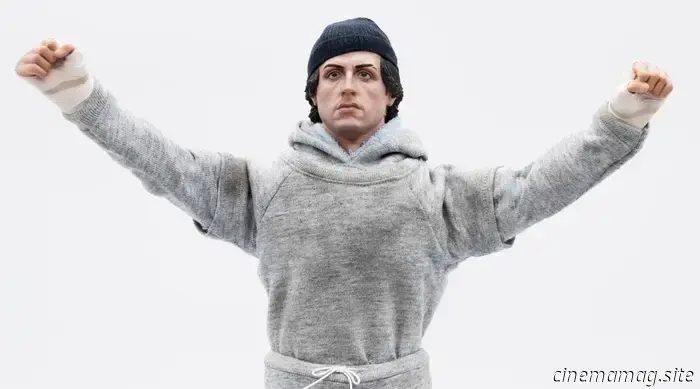 Sideshow and the Sly Stallone Shop have revealed the sixth scale figure of Rocky "The Underdog."
Sideshow and the Sly Stallone Shop have released the sixth scale Rocky (Underdog) collectible figure, capturing the likeness of Sylvester Stallone from the iconic 1976 boxing film. Take a look at both the Deluxe Edition and the Ultimate Edition here… Presenting the ROCKY “Underdog” Sixth Scale Figure, officially endorsed and approved by Sylvester Stallone himself […]
Sideshow and the Sly Stallone Shop have revealed the sixth scale figure of Rocky "The Underdog."
Sideshow and the Sly Stallone Shop have released the sixth scale Rocky (Underdog) collectible figure, capturing the likeness of Sylvester Stallone from the iconic 1976 boxing film. Take a look at both the Deluxe Edition and the Ultimate Edition here… Presenting the ROCKY “Underdog” Sixth Scale Figure, officially endorsed and approved by Sylvester Stallone himself […]
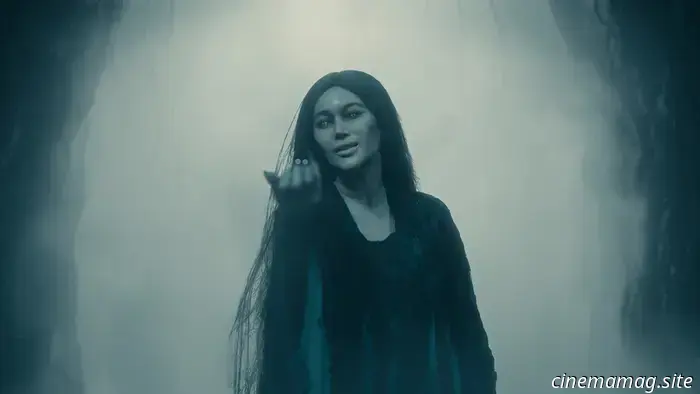 Trailer untuk film horor supernatural Indonesia, Soul Reaper, dipublikasikan.
Well Go USA has released a trailer for Soul Reaper, an Indonesian supernatural horror film directed by Sidharta Tata. The story follows Respati, a young man who is tormented by a succession of violent nightmares until he discovers that these dreams are, in fact, visions that start to become real. The […]
Trailer untuk film horor supernatural Indonesia, Soul Reaper, dipublikasikan.
Well Go USA has released a trailer for Soul Reaper, an Indonesian supernatural horror film directed by Sidharta Tata. The story follows Respati, a young man who is tormented by a succession of violent nightmares until he discovers that these dreams are, in fact, visions that start to become real. The […]
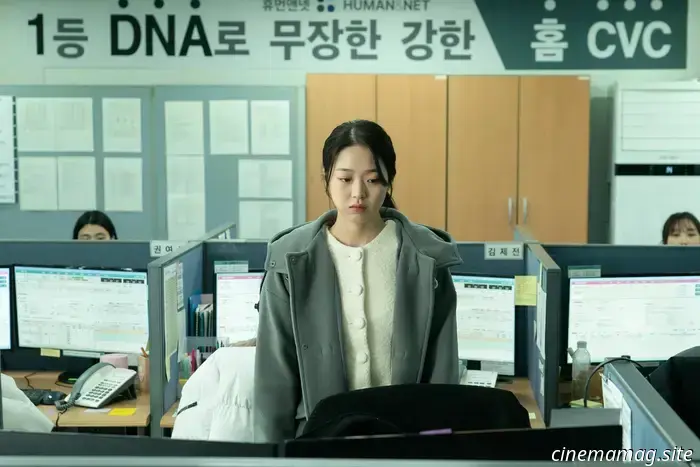 Next Sohee Review: Korean Thriller Approaches a Serious Topic with a Steady Touch
Note: This review was initially published as part of our coverage of the 2022 Fantasia festival. Next Sohee will be released in theaters on May 16. I used to think that capitalism's grip on the American education system through unpaid internships was problematic. However, as portrayed in July Jung's external drama Next Sohee, the situation in South Korea is even more concerning.
Next Sohee Review: Korean Thriller Approaches a Serious Topic with a Steady Touch
Note: This review was initially published as part of our coverage of the 2022 Fantasia festival. Next Sohee will be released in theaters on May 16. I used to think that capitalism's grip on the American education system through unpaid internships was problematic. However, as portrayed in July Jung's external drama Next Sohee, the situation in South Korea is even more concerning.
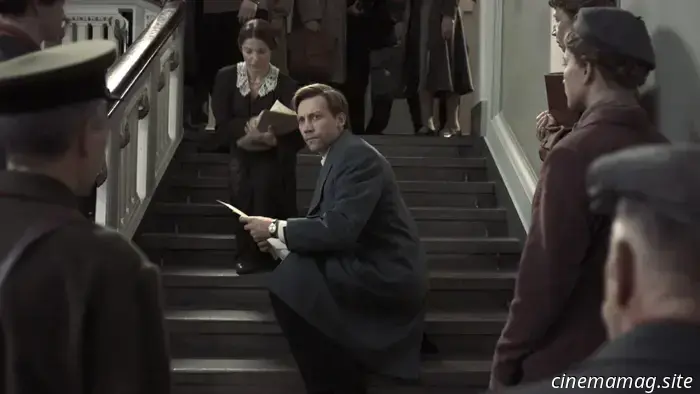 Cannes Review: Sergei Loznitsa’s Two Prosecutors Resonates Unsettlingly with Our Post-Truth Era
When Donbass was released in 2018, positioned between the onset of the 2014 Russian-backed conflict in the eponymous eastern Ukrainian area and the full-scale invasion of the country four years later, the reality Sergei Loznitsa captured with his camera was a surreal and decaying landscape. The film wasn’t exactly prescient regarding the horrors that would unfold.
Cannes Review: Sergei Loznitsa’s Two Prosecutors Resonates Unsettlingly with Our Post-Truth Era
When Donbass was released in 2018, positioned between the onset of the 2014 Russian-backed conflict in the eponymous eastern Ukrainian area and the full-scale invasion of the country four years later, the reality Sergei Loznitsa captured with his camera was a surreal and decaying landscape. The film wasn’t exactly prescient regarding the horrors that would unfold.
Cannes Review: Enzo is a Delicately Told Queer Coming-of-Age Story
The queer coming-of-age journey is marked by significant vulnerability, as a young individual must confront the understanding that they are evolving into someone distinct from their former selves and from those in their surroundings. Robin Campillo’s Enzo, which premiered at the Directors’ Fortnight section of Cannes, effectively captures the sensitivity of this theme and offers a correspondingly nuanced, gentle depiction of its characters.
